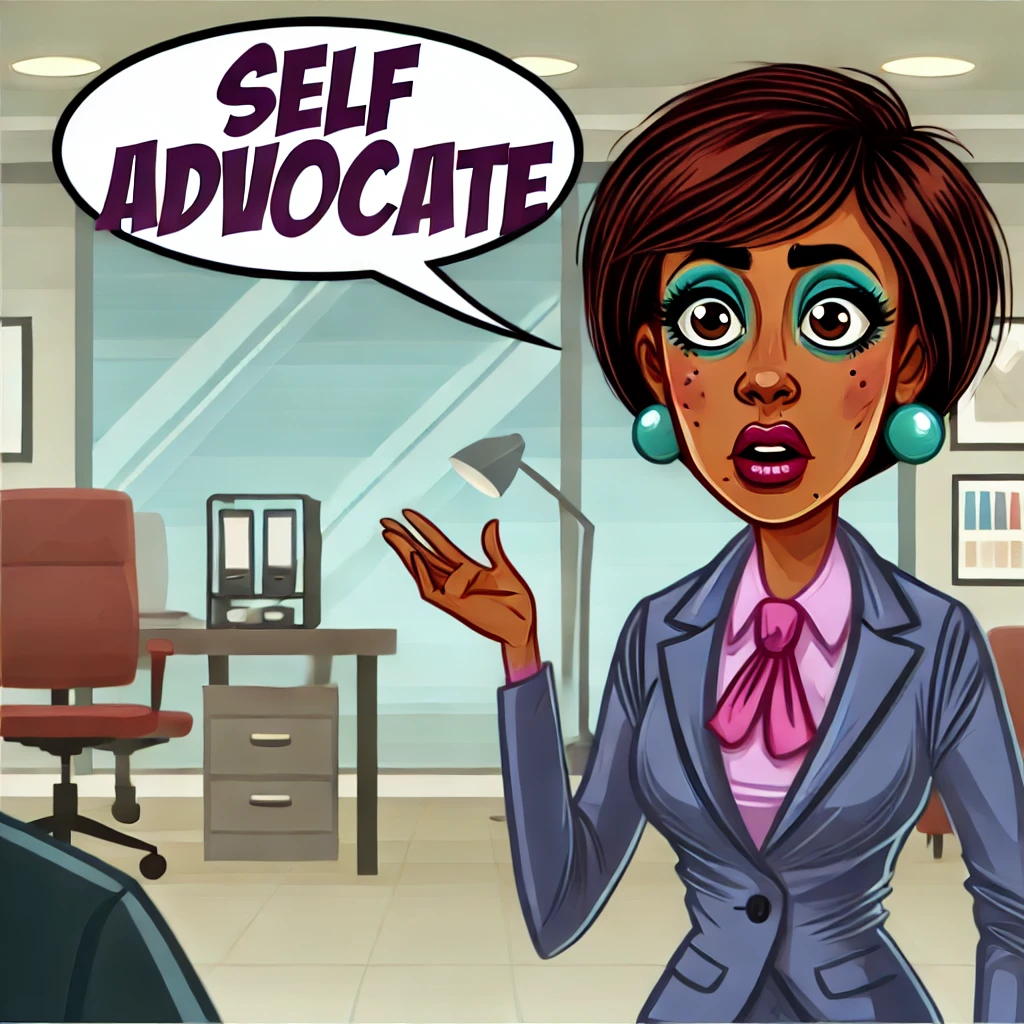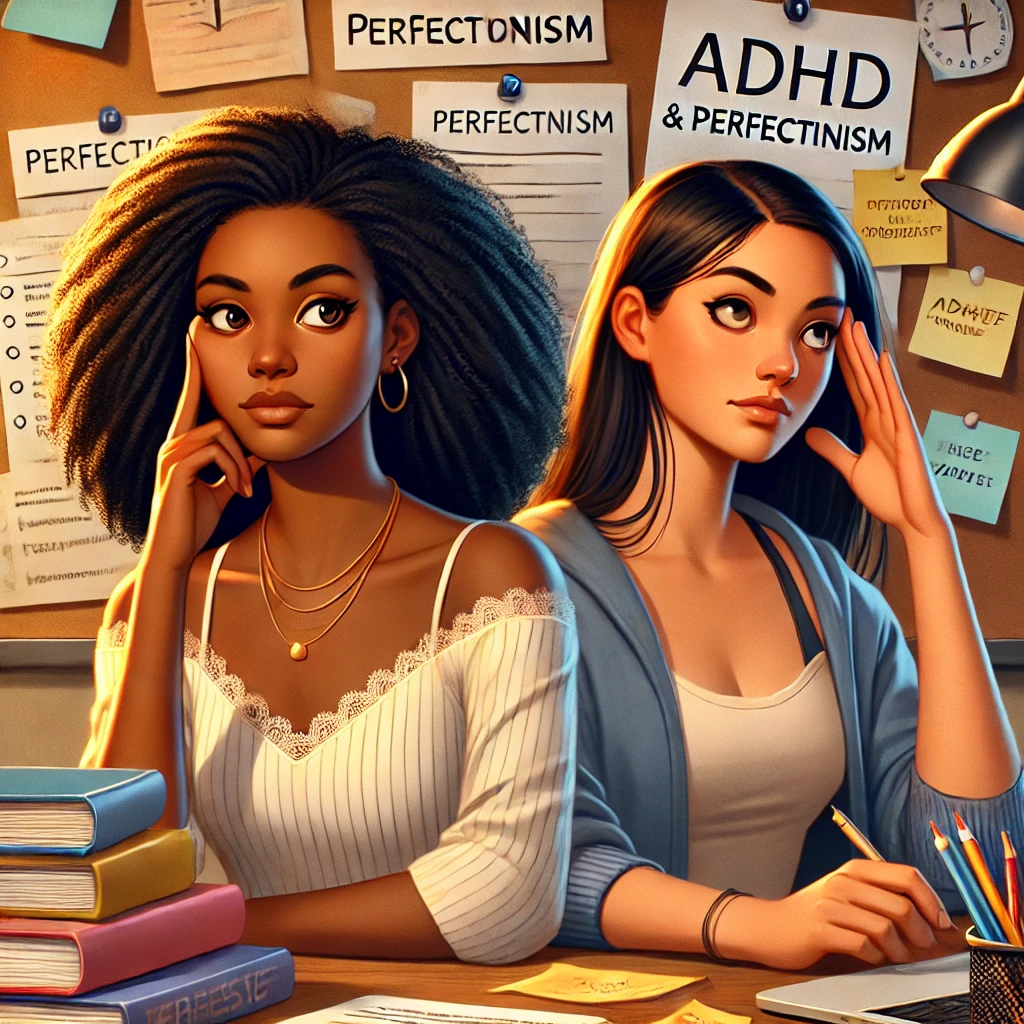
RSD and ADHD in Women: An Invisible Battle
Welcome to a detailed exploration of Rejection Sensitive Dysphoria (RSD) and ADHD. In this post, we will delve into how RSD and ADHD are intricately connected, presenting a set of traits that are frequently observed together. As someone who works extensively with women diagnosed with ADHD, I've observed RSD in every one of my clients to varying degrees. Although there isn't a specific, widely recognized estimate of how many women with ADHD suffer from RSD, the association between these conditions is clear and significant in the experiences of those affected.
Broadly defined, Rejection Sensitive Dysphoria (RSD) is a condition where a person experiences intense emotional pain ( sometimes physical) and distress in response to perceived or actual rejection, criticism, or failure. It's often associated with ADHD and involves feeling emotions such as sadness, embarrassment, anger, or shame very intensely and reacting strongly.
Just because you recognize RSD doesn't mean you have ADHD. While RSD is commonly seen in neurodevelopmental differences such as:
- 🧠 ADHD (Attention Deficit Hyperactivity Disorder)
- 🧩 Autism Spectrum Disorder (ASD),
It's also seen in mental health conditions like:
- 😨 Anxiety Disorders (e.g., Social Anxiety Disorder)
- 🌧️ Mood Disorders (e.g., Depression, Bipolar Disorder)
- 🎭 Personality Disorders (e.g., Borderline Personality Disorder).
Rejection Sensitivity is a subtype of Emotional Dysregulation
Rejection Sensitive Dysphoria (RSD) is closely linked to emotional dysregulation in individuals with ADHD. RSD is seen as a subtype of emotional dysregulation. This can lead to intense, sudden emotions, responses, and behaviors that are considered disproportionate to the situation. These "overreactions" are a form of emotional dysregulation. Additionally, the fear of rejection typical in RSD can cause people to avoid situations, which limits their opportunity to develop effective coping skills and can worsen feelings of isolation, functioning and emotional instability. Thus, RSD not only aligns with but also intensifies the emotional dysregulation seen in ADHD. Emotional Dysregulation isn't part of the diagnostic criteria of ADHD although experts recognize that it should be. This may explain why RSD isn't recognized as part of ADHD even though the statistics say they are connected.
What causes ADHD RSD?
Rejection Sensitivity Dysphoria (RSD) and ADHD: RSD is closely associated with ADHD and involves profound emotional reactions to perceived or actual rejection. 💔😞 Genetic Foundations: William Dodson highlights that RSD is a component of the emotional dysregulation seen in ADHD, suggesting a genetic basis. 🧬 This implies that some aspects of RSD can be inherited. 👪 Influence of Early Negative Feedback: Research indicates that by the age of 12, children with ADHD have typically received approximately 2,000 more negative messages compared to their non-ADHD peers. 📉 This excessive criticism can heighten sensitivity to rejection. 😢 Environmental Contributions: The development and severity of RSD are influenced by genetics and significantly shaped by environmental factors. 🌍 The interactions and experiences one has, particularly during formative years, play a crucial role. 📚 Social, Self-Protective Bias: Additionally, individuals may develop a social, self-protective bias as a coping mechanism to shield themselves from the pain of rejection. 🛡️ This protective behavior might unintentionally increase their sensitivity to any signs of rejection, further complicating their emotional response. 🔍 Complex Interplay: Understanding RSD involves dissecting the complex interplay between genetic predispositions and environmental influences. 🔄 This interaction complicates our understanding of how individuals with ADHD are affected by RSD. 🤔What are the symptoms of RSD?
RSD isn't in the DSM yet, but many experts advocate for it to be included in the criteria for ADHD. If you are a person who struggles with RSD, you feel intensely hurt, shamed, and angry when blamed or rejected. Check if you experience this severe, intense, painful reaction when you:- Imagine yourself being criticized or rejected
- Believe that these situations might be occurring (even if they aren't)
- Fear that they might happen
- Ruminating
- Self-Blame
- Physical symptoms (previously referred to as Somatization)
Rumination
One symptom of ADHD RSD in women is rumination, which is the tendency to repeatedly think about and dwell on negative thoughts and emotions associated with an episode as if you are stuck in a loop. This makes functioning really difficult by magnifying the emotional and physical pain.
Self Blame
Blaming and criticizing yourself for your emotions, thoughts, or something that happened is also part of RSD.
Body Feelings
Part of the distress of RSD is when a person may experience not just emotions but actual physical pain and physical symptoms such as headaches, stomachaches, or muscle tension as a result of the intense emotional reactions associated with RSD. RSD episodes are traumatic. Treatment from providers who understand this is essential!
Plunging into Sadness and Dysfunction
After an episode of Rejection Sensitive Dysphoria (RSD), individuals may experience a severe plunge into sadness that significantly disrupts their daily functioning. This isn't a brief moment of discomfort; rather, it's a deep, prolonged descent where minor incidents of rejection or criticism can trigger an overwhelming emotional response. This intense sadness can disrupt normal functioning for weeks, affecting the individual’s ability to handle daily tasks, engage socially, and fulfill professional obligations. Sometimes, I've seen an episode go beyond trouble with functioning and trigger preexisting mental health conditions such as anxiety or depression. Such episodes highlight the critical need for understanding and addressing RSD, ensuring that those affected receive the supportive interventions necessary to help them regain their stability and mitigate the impact of these disruptive emotional plunges.
How Often do Attention Deficit Hyperactivity Disorder and Rejection Sensitivity occur together?
The only research exploring RSD to date suggests that it is higher in women than in men (Ginapp et al., 2023).
-
For males, 3 out of 7 reported RSD. This can be expressed as a percentage: 37×100=42.86%73×100=42.86%
-
For females, 30 out of 36 reported RSD. This can be expressed as a percentage: 3036×100=83.33%3630×100=83.33%





